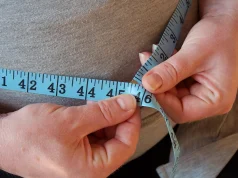Ventilatory burden can also predict all-cause and cardiovascular disease mortality
By Elana Gotkine HealthDay Reporter
MONDAY, Sept. 18, 2023 (HealthDay News) — Automated ventilatory burden, which represents the proportion of overnight breaths with <50 percent normalized amplitude, can measure the severity of obstructive sleep apnea (OSA), according to a study published online Sept. 12 in the American Journal of Respiratory and Critical Care Medicine.
Noting that the apnea-hypopnea index (AHI) used for diagnosis of OSA has demonstrable limitations, Ankit Parekh, Ph.D., from the Icahn School of Medicine at Mount Sinai in New York City, and colleagues proposed a novel automated measure, ventilatory burden, and examined its ability to overcome these limitations. Data were included from two epidemiological cohorts — the Sao Paolo Epidemiological Study (EPISONO) and Sleep Heart Health Study (SHHS) — as well as two retrospective clinical cohorts, Relating Sleep Disordered Breathing to Daytime Function (DAYFUN) and New York University Center for Brain Health.
The researchers found that in asymptomatic healthy participants, the 95th percentile of ventilatory burden was 25.2 and 26.7 percent across the EPISONO and DAYFUN cohorts, respectively. There was an association seen for ventilatory burden with the degree of upper airway obstruction in a dose-response manner; ventilatory burden also exhibited low night-to-night variability. Before and after adjustment for covariates including hypoxic burden, ventilatory burden was predictive of all-cause and cardiovascular disease mortality in the SHHS cohort. AHI predicted all-cause mortality but was not linked to cardiovascular disease mortality in the SHHS cohort.
“Clinicians who rely on arbitrary rules and thresholds for assessing severity of sleep apnea will now have a better validated tool to better manage sleep apnea and patients can receive the best care earlier,” Parekh said in a statement.
Copyright © 2023 HealthDay. All rights reserved.








